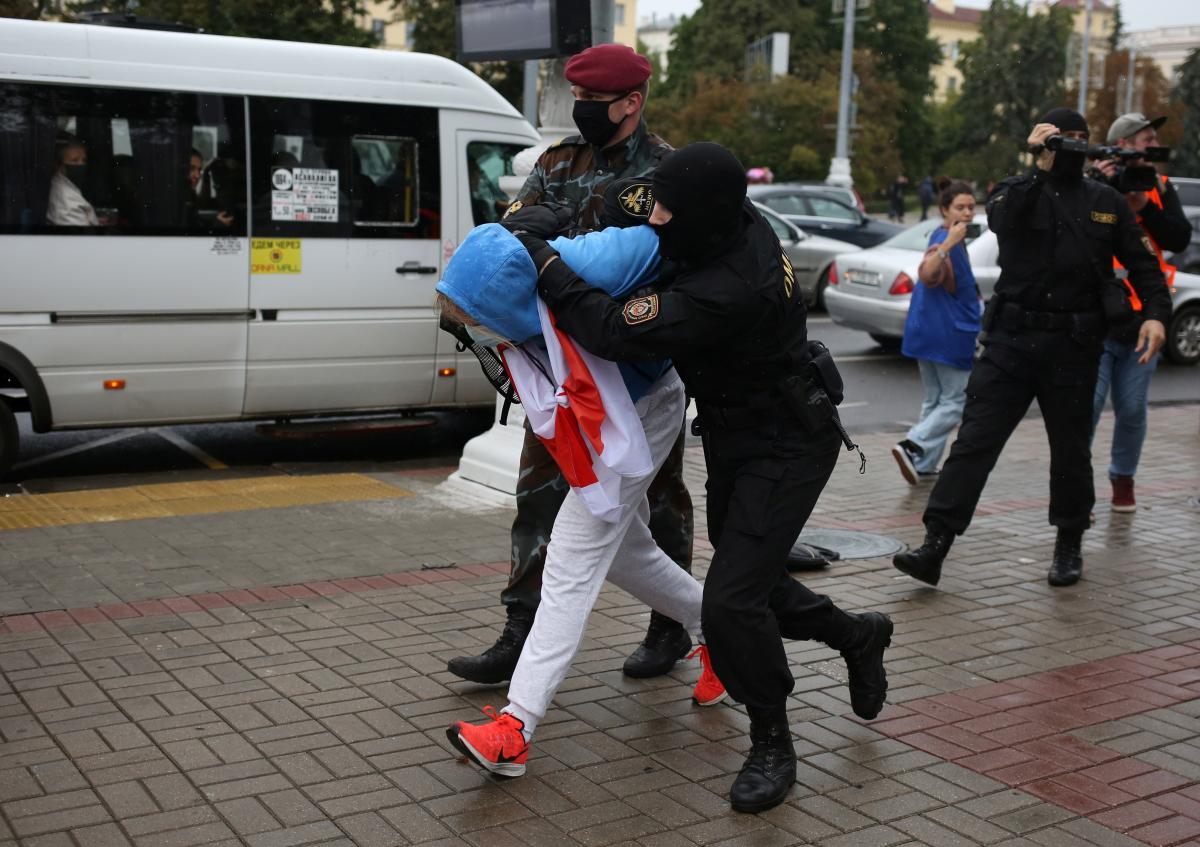
UN human rights experts claim 450 documented cases of torture have been recorded in Belarus since the beginning of mass protests.
"The experts received reports of 450 documented cases of torture and ill-treatment of people deprived of their liberty after the disputed presidential election on August 9 that led to mass protests and arrests," the OHCHR said on September 1, 2020.
Read alsoBelarus protests: Students take to streets in Minsk on Sept 1 (Photo, video)It is noted most people reported missing have been accounted for, but it is alarming that the whereabouts and the state of health of at least six individuals are reportedly unknown to their relatives.
The experts also received reports of violence against women and children, including sexual abuse.
Belarus protests: background
- On August 9, presidential elections were held in Belarus. The country's Central Election Commission announced the final election results. In particular, 80.1% of voters supported incumbent President Alexander Lukashenko, 10.1% voted for Svetlana Tikhanovskaya, 1.67% for Anna Kanopatskaya, 1.2% for Andrey Dmitriev, and 1.14% for Sergei Cherechnya. Some 4.59% voted against all candidates.
- Thousands of residents of Belarus took to the streets to protest what they believe is a rigged vote count. Riot police violently cracked down on protesters.
- Belarus' Ministry of Internal Affairs said about 7,000 protesters had been detained in different cities since August 9. On the evening of August 13, the authorities started to release detainees.
- On August 14, the European Union announced it did not recognize the outcome of the presidential elections in Belarus and on August 19 leaders reportedly agreed on sanctions to be introduced over election rigging and violence against protesters.
- The March of Freedom, the largest protest in the history of Belarus, took place on August 16 in Minsk. Hundreds of thousands of people joined in.
- On August 20, the Prosecutor General's Office opened a criminal probe into the attempt by the opposition to "seize power."
- Lukashenko has repeatedly claimed "foreign interference" in the election and the external efforts to foment protests. He spoke with Russian President Vladimir Putin who had promised him comprehensive assistance upon request.
- Belarusian Defense Minister Viktor Khrenin has warned of the possible use of army to disperse protesters rallying under the flags he claims were once used by Nazi troops.

